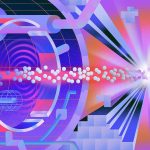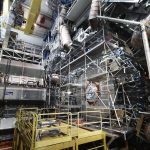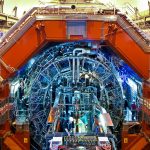Large Hadron Collider
From New Scientist, Jan. 25, 2021: The Big Bang left us the universe — and a major set of mysteries around antimatter, dark matter, dark energy, and cosmic inflation. While the Large Hadron Collider looks at what the laws of physics were like a trillionth of a second after the Big Bang, Dan Hooper, head of theoretical astrophysics at Fermilab, thinks the answers to these puzzles may depend on better understanding that first fraction of a second — even closer to the universe’s beginning.
From CERN, Jan. 26, 2021: This week marks the 50th anniversary of the first proton collisions in CERN’s Intersecting Storage Rings, the first hadron collider ever built. To celebrate, see hadron colliders of the last half-century — including the Tevatron and the Large Hadron Collider — through a historical lens, with an eye toward the quest for high luminosity and new energy frontiers.
From CERN Courier, Jan. 13, 2021: The US LHC Accelerator Upgrade Project, led by Fermilab scientist Giorgio Apollinari, is now entering the production phase in the construction of magnets for the upcoming High-Luminosity LHC, an upgrade of the current Large Hadron Collider. U.S. labs are building magnets that will focus beams near the ATLAS and CMS particle detectors.
Matter and antimatter particles can behave differently, but where these differences show up is still a puzzle. Scientists on the LHCb experiment at the Large Hadron Collider study much more subtle differences between matter particles and their antimatter equivalents. A recent analysis allowed them to revisit an old mystery — an asymmetry between asymmetries.
From Phys.org, Dec. 7, 2020: The CMS collaboration, a worldwide group of scientists studying particle collisions at CERN’s Large Hadron Collider, has recently observed the production of three massive gauge bosons in proton-proton collisions for the first time ever. Northwestern University postdoc and Fermilab Distinguished Researcher Saptaparna Bhattacharya talks about the triboson search.
When two heavy ions collide inside a particle accelerator, they produce a near-perfect fluid through which an assortment of fundamental particles swim. For scientists to accurately simulate even a tiny drop of this hot and dense subatomic brew with a classical computer, it would take longer than the age of the universe. Scientists show how quantum computing could be a game-changer in our understanding of quantum processes.






